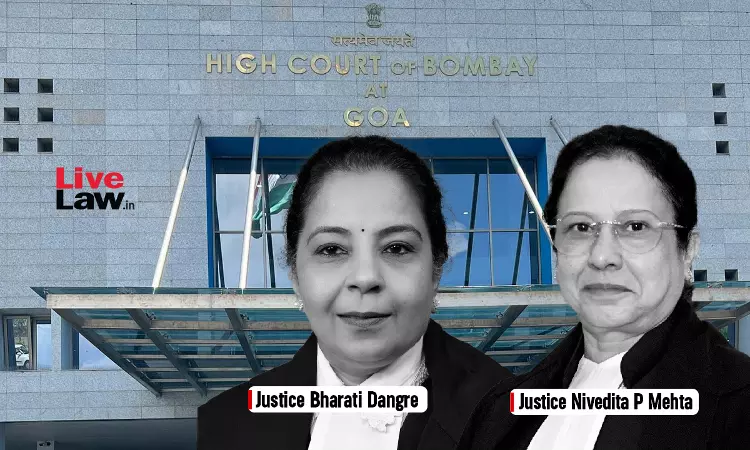- Home
- /
- High Courts
- /
- Bombay High Court
- /
- Cops Must Discharge Power With...
Cops Must Discharge Power With Accountability, Not On Apprehensions: Bombay High Court Declares Alleged PFI Member's Arrest 'Illegal'
Narsi Benwal
15 Aug 2025 10:00 AM IST
The Goa bench of the Bombay High Court while declaring 'illegal' the arrest of a sitting Councillor of a local body for being an alleged member of the Popular Front of India (PFI), recently held that the police cannot arrest a person under section 151 of the Criminal Procedure Code (CrPC) merely on the apprehension that the said person may indulge in illegal activities in future and that there...
The Goa bench of the Bombay High Court while declaring 'illegal' the arrest of a sitting Councillor of a local body for being an alleged member of the Popular Front of India (PFI), recently held that the police cannot arrest a person under section 151 of the Criminal Procedure Code (CrPC) merely on the apprehension that the said person may indulge in illegal activities in future and that there is a possibility of him breaching peace in the locality.
A division bench of Justices Bharati Dangre and Nivedita Mehta noted that while the Union government banned PFI and its affiliated organisations on September 27, 2022, the applicant Sarfaraz Sayyad was arrested on September 29, 2022 for allegedly being a member of the PFI.
The judges noted that the police while relying on 'secret information' that Sayyad was a 'suspected' member of PFI, apprehended that he may in future, indulge in activities, which could disturb the peace and tranquility in the area and may also commit a cognisable offence and therefore, arrested him.
The judges noted that the police did not place any convincing material before the District Magistrate, except stating that the PFI was declared as an Unlawful Association under the Unlawful Activities (Prevention) Act (UAPA) and it was suspected that the members of PFI are likely to indulge themselves in activities, which were likely to disturb the peace in the locality, the applicant came to be arrested.
"No other specific material was placed before the Magistrate regarding the design or intention to indulge in any cognisable offence, which could not have been prevented unless and until he was arrested. The mere apprehension that the person may indulge in illegal activities in future and there is a possibility of breach of peace in the locality or commission of any cognisable offence, according to us, is not sufficient ground which would justify exercise of this power. The power conferred on the police officer necessarily must be discharged with accountability and responsibility," the judges held in the order passed on August 11.
A provision which necessarily gives a go by to the normal process of arrest by either obtaining a warrant or without obtaining necessary orders from the Magistrate definitely contemplate reliable material to reflect upon the justification in the police officer exercising the power and in case of Section 151 when the Police Officer gets a knowledge of design to commit any cognisable offence by a person to be arrested and in order to prevent such an offence taking place, his arrest is effected, the judges said.
"We do not find any material in that regard as we have noted that except expressing an apprehension of likelihood of such activity being committed, with no concrete material establishing the link of the Petitioner with the PFI or substantially establishing that he has indulged in activities of the Unlawful Association in the past giving rise to an apprehension that he may indulge into the said activities, upon it being declared an Unlawful Association, is conspicuously absent," the bench pointed out.
Further, the judges emphasised how right to reputation, is a facet of right to life and liberty and the said right of the petitioner has been breached by the police by arresting him without there being no incriminating material against him.
"When we test the arrest in the backdrop of Article 21, i.e. 'right to life and liberty', which has considered a right to reputation as a cherished right and an important facet of Article 21 of the Constitution of India, as the term 'life' is of wider amplitude and necessarily convey, life with dignity and involve reputation of a person, with the Petitioner being enjoying a position in the society, he definitely has a right to contend that his image in the society has been tarnished on account of the action of his wrongful arrest without sufficiency of the material justifying such an arrest under Section 151 of the CrPC," the bench held.
The judges, therefore, declared Sayyad's arrest illegal and therefore, granted him the liberty to seek compensation before an appropriate forum.
Appearance:
Advocates Shivan Desai and Maria Carmel Cota Viegas appeared for the Petitioner.
Public Prosecutor Shailendra Bhobe represented the State.
Case Title: Sarfaraz Sayyad vs State of Goa [Criminal Writ Petition 751 of 2022 (Filing)]



